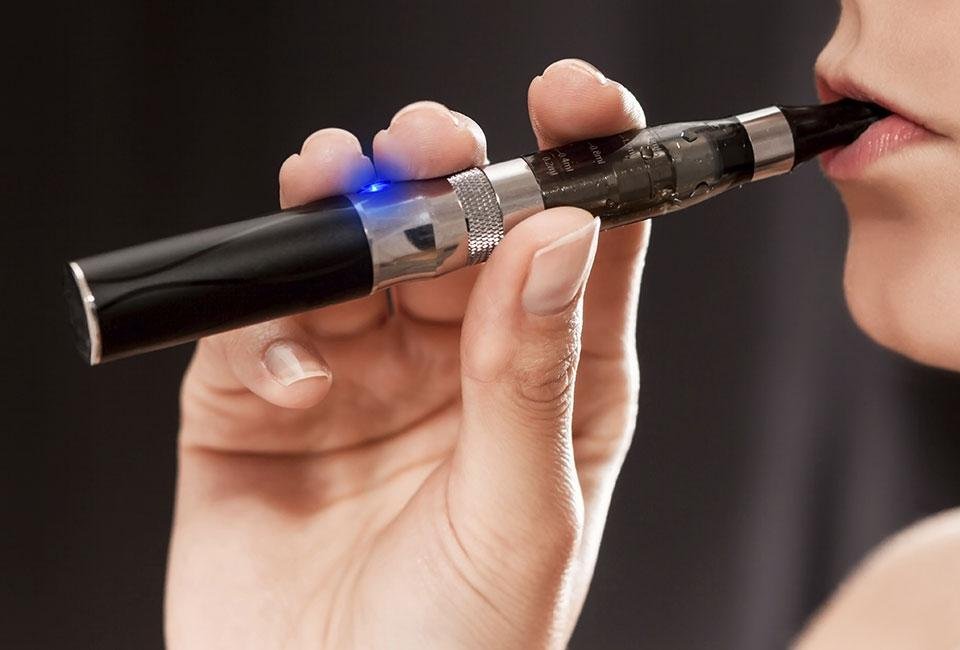Amid the reported rise in vaping among the youth, the Department of Education (DepEd) has reinforced lessons on the negative effects of tobacco use, as well as e-cigarettes or vape products, in the revised Kindergarten to Grade 10 (K-10) curriculum.
DepEd Assistant Secretary Dexter Galban on Friday said that while the concept of tobacco and vape control was already alluded to and integrated in the old curriculum, the department now seeks to make the youth more aware of the emerging dangers of using vape and tobacco products.
“We want to intensify that even more to update the kinds of products that are existing in the market, and at the same time to make them more familiar with the emerging dangers that are associated with it,” he said in a media conference in Olongapo City.
“The high level of nicotine content, etcetera—these will be further highlighted in the new curriculum,” he added.

The Department of Health’s Health Promotion Bureau earlier reported that the use of tobacco has declined in the Philippines over the last ten years, but vape usage has increased, particularly among the youth aged 13 to 15.
In the MATATAG K-10 curriculum, Galban said that topics on vape and tobacco will be incorporated in different subjects, especially in the health components.
“This is also alluded to in terms of the financial aspect, particularly because it’s very expensive to be dependent on any substance. That’s why there are healthier coping mechanisms that are highlighted,” he said.
“We present that these are the dangers. But at the same time, we complement that by presenting what are the better alternatives for your mental health and well-being—whether that be counseling, whether that be engaging in sports, whether that be being part of a social civic movement for development,” he continued.
MATATAG stands for: (1) MAking the curriculum relevant; (2) TAking steps to accelerate the delivery of basic education facilities and services; (3) TAking good care of learners by promoting learner well-being, inclusive education, and a positive learning environment; and (4) Giving support to teachers to be able to teach better.
Integrated in subjects
Based on the curriculum guides, the dangers of “gateway drugs” such as tobacco, e-cigarette, caffeine, and alcohol will be introduced to Grade 5 students under the Physical Education and Health subject.
At Grade 8, learners will be taught about interventions, laws, and policies to prevent the use of psychoactive substances. These include Republic Act (RA) 9211, or the Tobacco Regulation Act of 2003, and the RA 9165 or the Comprehensive Dangerous Drugs Act of 2002.
DepEd launched the MATATAG K-10 curriculum in August 2023, and piloted it in 35 schools nationwide during School Year 2023-2024.
The phased implementation of the new curriculum among learners in Kinder, Grade 1, Grade 4, and Grade 7 will begin in School Year 2024-2025. It will be followed by Grades 2, 5, and 8 in SY 2025-2026; Grades 3, 6 and 9 in SY 2026-2027; and Grade 10 in SY 2027-2028.
As for the Grades 11 and 12, whose revised curriculum has yet to be released, Galban said that it could be expected that topics on vape and tobacco products will be given prominence at those levels further.
“It will be highlighted there even more as they reach a critical age wherein they will already be allowed to purchase, wherein they will no longer be under the restricted age barrier for purchasing. We really have to amplify it through that,” he said.
Youth are more at risk
Pulmonologist Dr. Maricar Limpin, meanwhile, affirmed that the youth are more at risk of developing heart diseases, lung diseases, and even cancer because of the rise of vape products.
The DOH recently announced the first recorded vape-related death in the Philippines, involving a 22-year-old Filipino male.
The patient suffered from a heart attack following a severe lung injury, which was linked to his daily vape usage for two years.
Limpin, who is also the executive director of the Action on Smoking and Health (ASH) Philippines, said, “22 is very young, nagkaroon na agad ng [but he already had] lung problem and heart problem. We don’t actually expect them to develop such problems.”
The physician thus called for the amendment of the Vape Law to raise the legal age of using vape from the current 18 years old to 25 years old.
The DOH has been persistently warning Filipinos about the harmful effects of smoke and emissions from tobacco products, vapor products, and heated tobacco products.
Health Secretary Ted Herbosa had also raised concern about the rising use of vape among the youth, stressing the health risks that nicotine poses to people, whether it is through tobacco or e-cigarette. — VDV, GMA Integrated News










